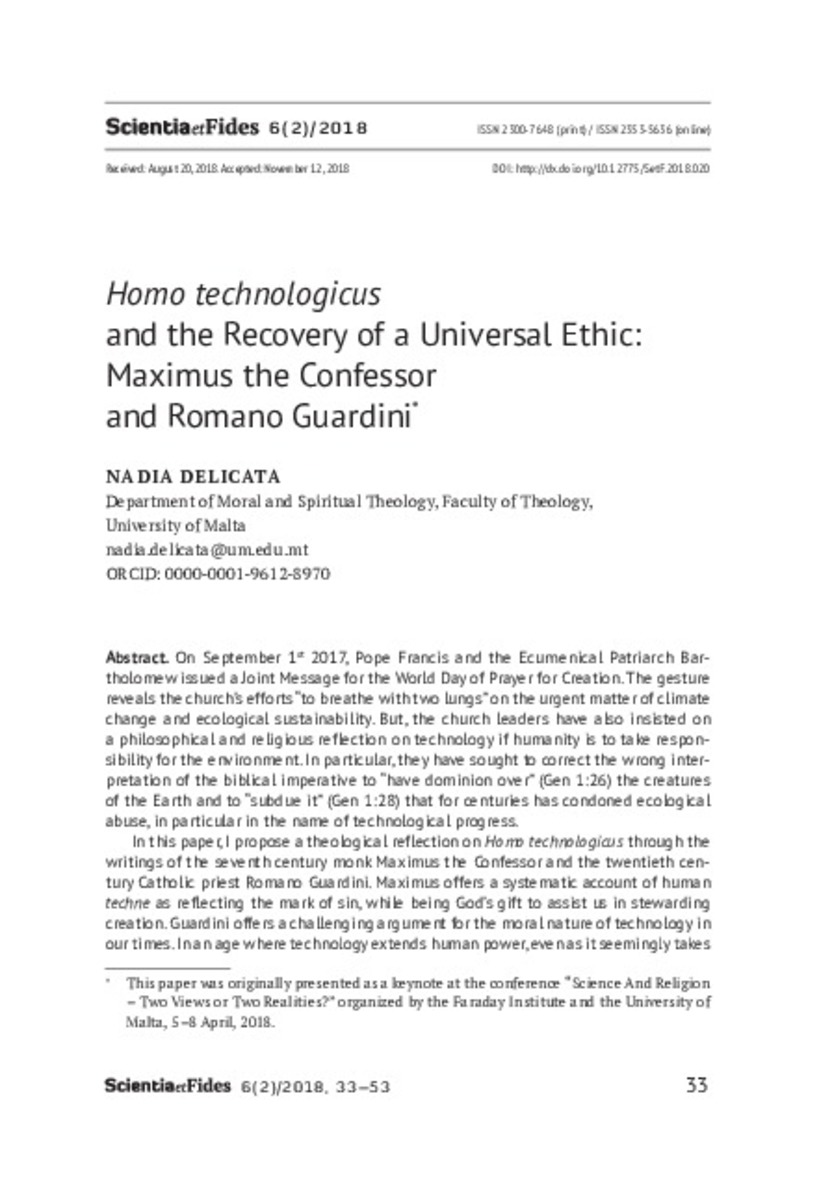Homo technologicus and the Recovery of a Universal Ethic: Maximus the Confessor and Romano Guardini
Keywords:
technological human
techne
theological anthropology
Laudato Sì
natural law
Publisher:
Universidad Nicolás Copérnico de Torun
Citation:
Delicata, N. (Nadia). "Homo technologicus and the Recovery of a Universal Ethic: Maximus the Confessor and Romano Guardini". Scientia et Fides. 6 (2), 2018, 33 - 53
Statistics and impact
0 citas en

0 citas en

Items in Dadun are protected by copyright, with all rights reserved, unless otherwise indicated.







